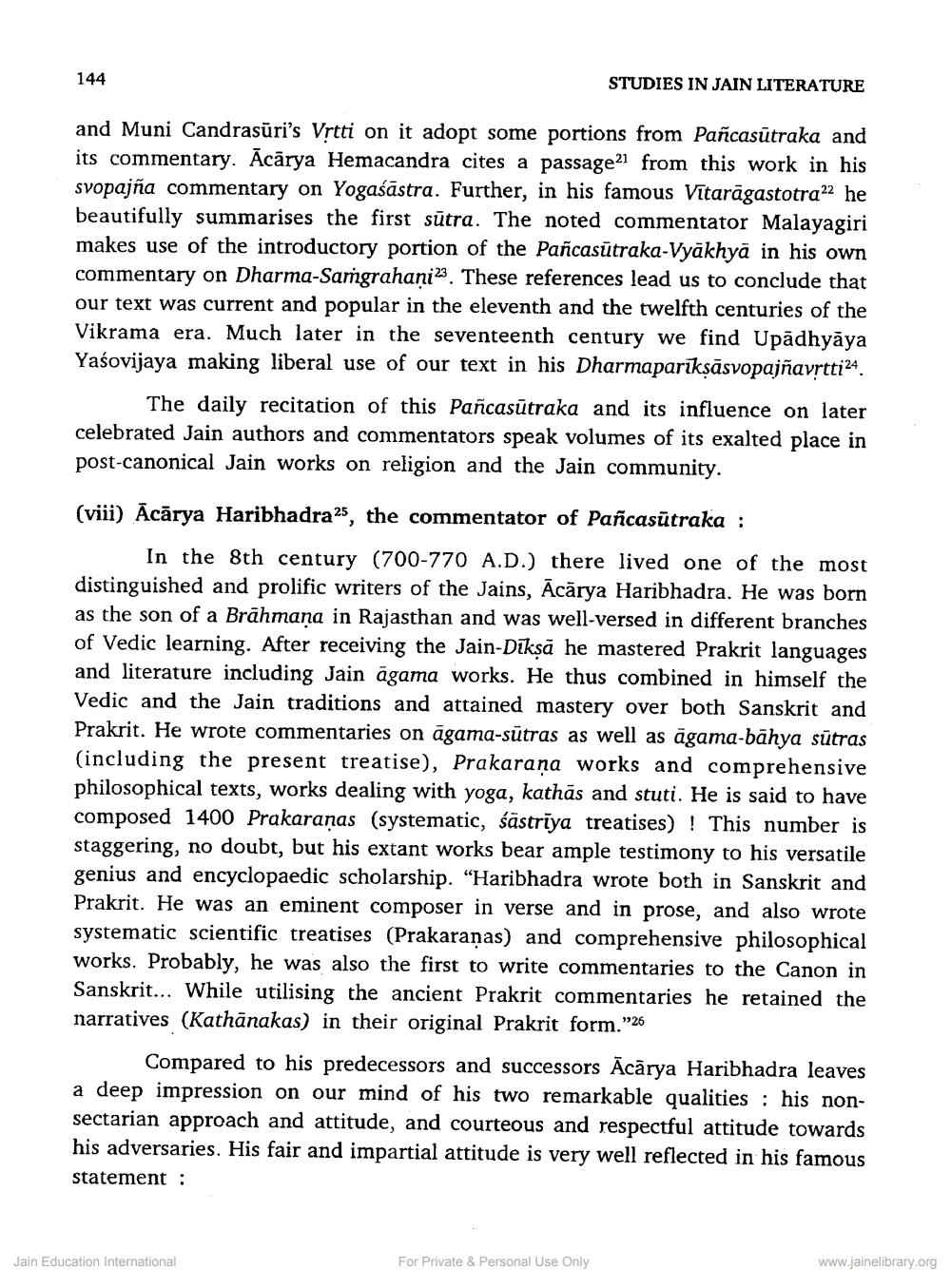________________ 144 STUDIES IN JAIN LITERATURE and Muni Candrasuri's Vrtti on it adopt some portions from Pancasutraka and its commentary. Acarya Hemacandra cites a passage21 from this work in his svopajna commentary on Yogasastra. Further, in his famous Vitaragastotra22 he beautifully summarises the first sutra. The noted commentator Malayagiri makes use of the introductory portion of the Pancasutraka-Vyakhya in his own commentary on Dharma-Samgrahani23. These references lead us to conclude that our text was current and popular in the eleventh and the twelfth centuries of the Vikrama era. Much later in the seventeenth century we find Upadhyaya Yasovijaya making liberal use of our text in his Dharmapariksasvopajnavstti24. The daily recitation of this Pancasutraka and its influence on later celebrated Jain authors and commentators speak volumes of its exalted place in post-canonical Jain works on religion and the Jain community. (viii) Acarya Haribhadra25, the commentator of Pancasutraka : In the 8th century (700-770 A.D.) there lived one of the most distinguished and prolific writers of the Jains, Acarya Haribhadra. He was born as the son of a Brahmana in Rajasthan and was well-versed in different branches of Vedic learning. After receiving the Jain-Diksa he mastered Prakrit languages and literature including Jain agama works. He thus combined in himself the Vedic and the Jain traditions and attained mastery over both Sanskrit and Prakrit. He wrote commentaries on agama-sutras as well as agama-bahya sutras (including the present treatise), Prakarana works and comprehensive philosophical texts, works dealing with yoga, kathas and stuti. He is said to have composed 1400 Prakaranas (systematic, sastriya treatises) ! This number is staggering, no doubt, but his extant works bear ample testimony to his versatile genius and encyclopaedic scholarship. "Haribhadra wrote both in Sanskrit and Prakrit. He was an eminent composer in verse and in prose, and also wrote systematic scientific treatises (Prakaranas) and comprehensive philosophical works. Probably, he was also the first to write commentaries to the Canon in Sanskrit... While utilising the ancient Prakrit commentaries he retained the narratives (Kathanakas) in their original Prakrit form."26 Compared to his predecessors and successors Acarya Haribhadra leaves a deep impression on our mind of his two remarkable qualities : his nonsectarian approach and attitude, and courteous and respectful attitude towards his adversaries. His fair and impartial attitude is very well reflected in his famous statement : For Private & Personal Use Only Jain Education International www.jainelibrary.org




